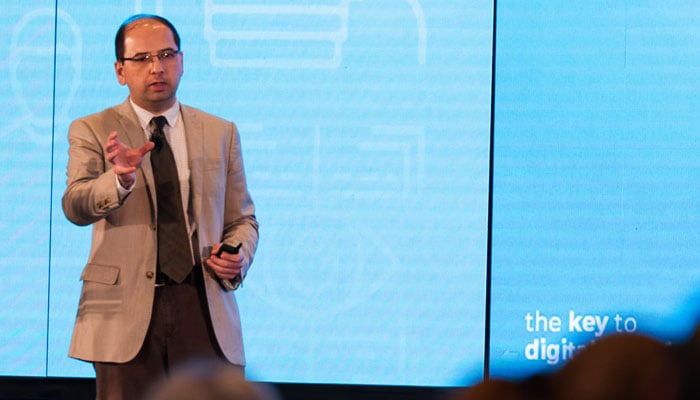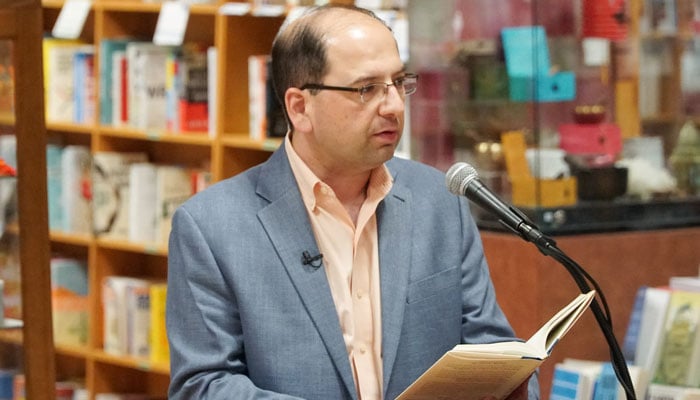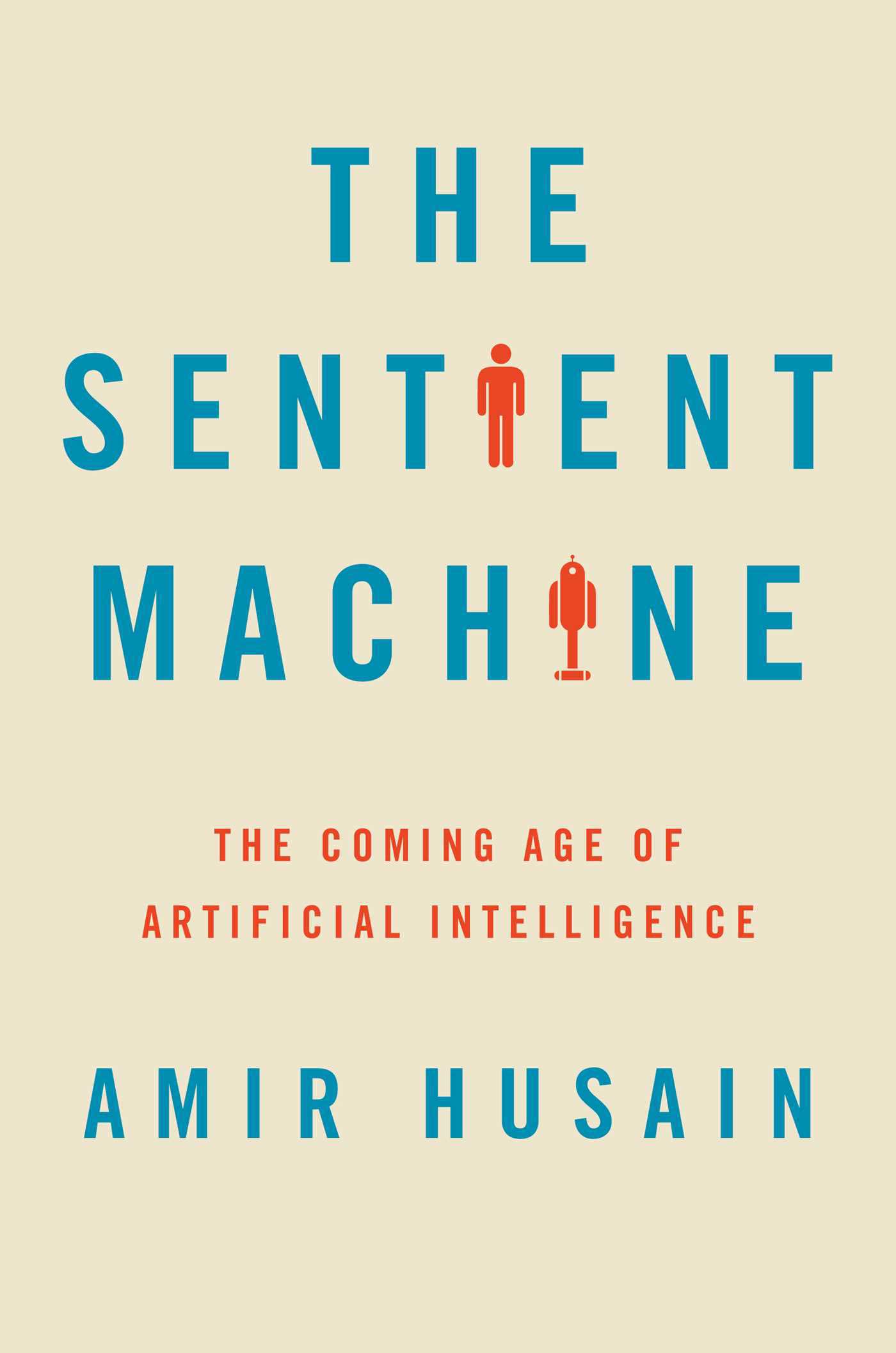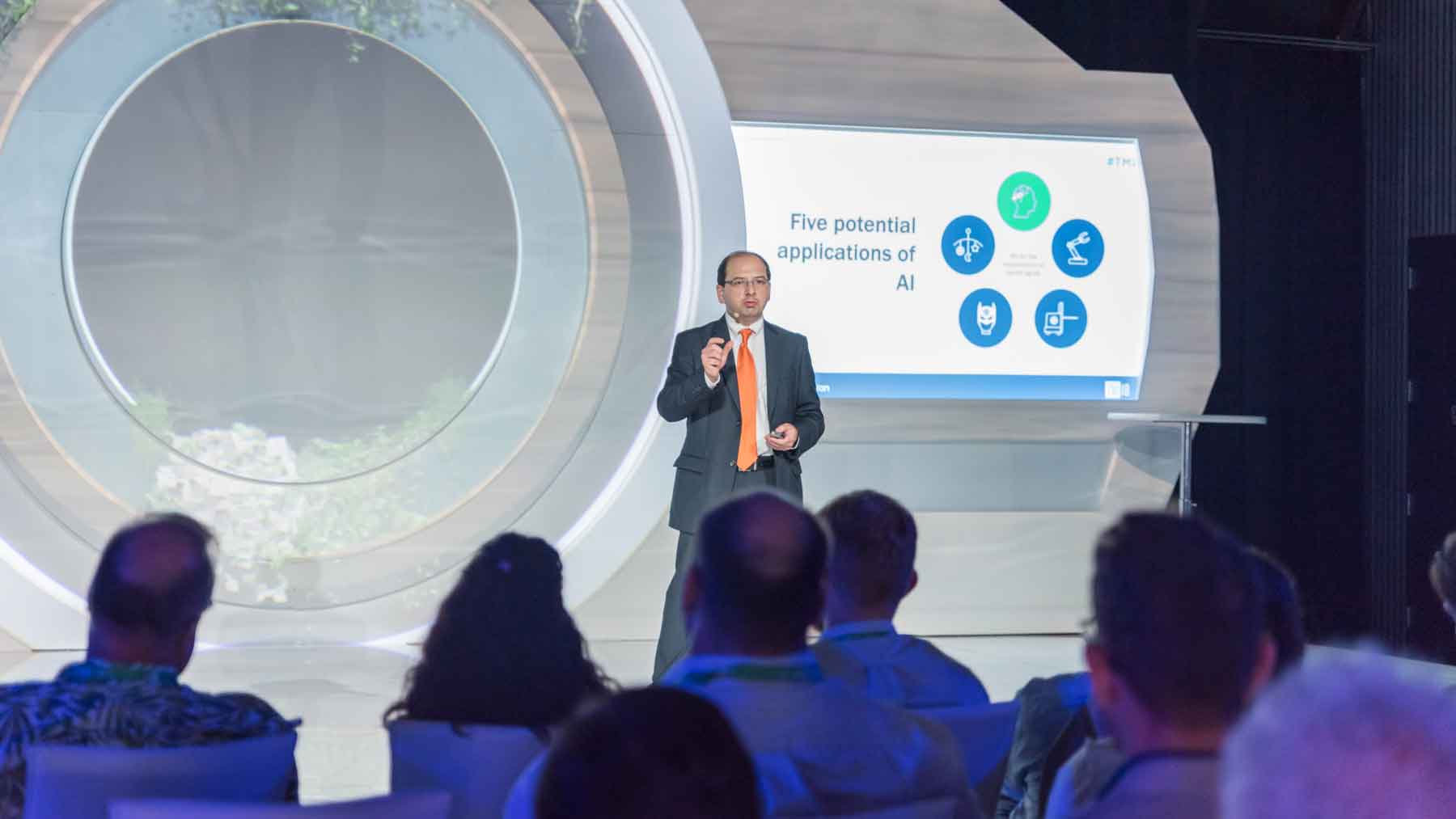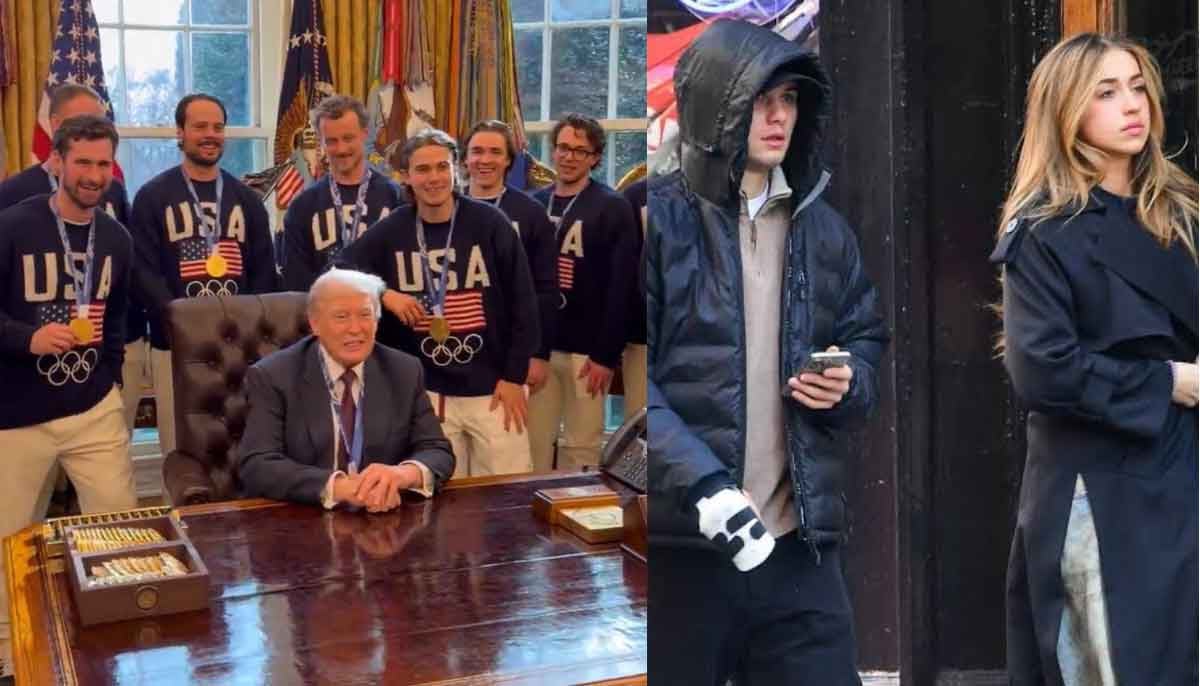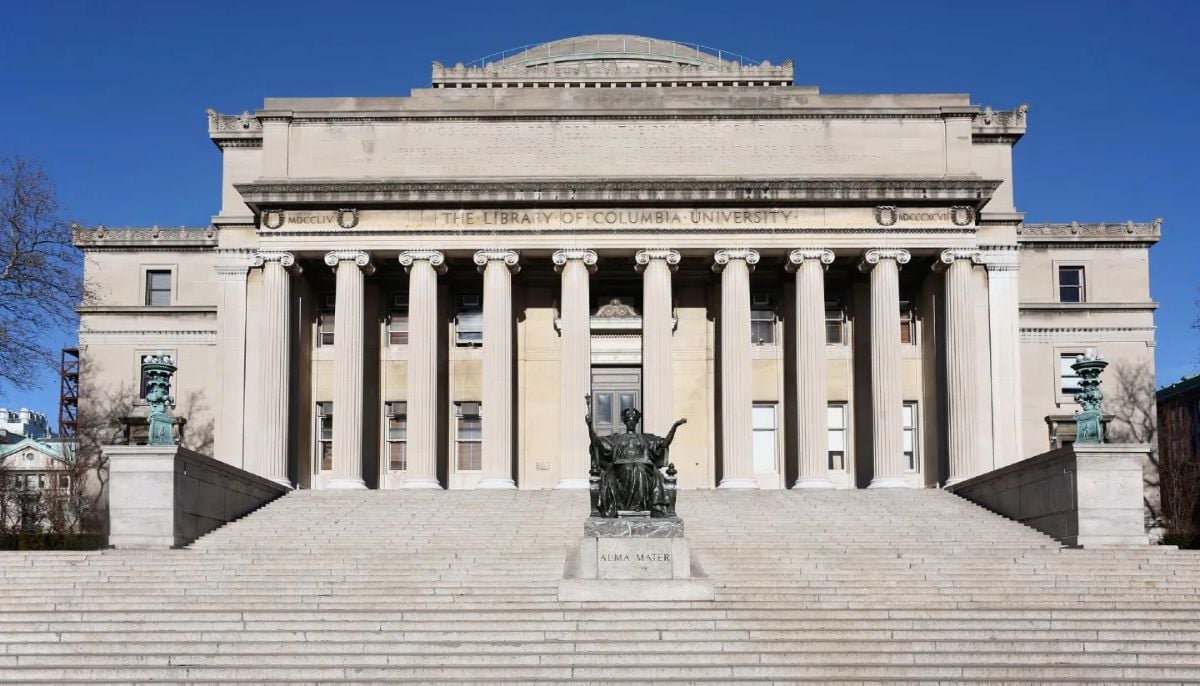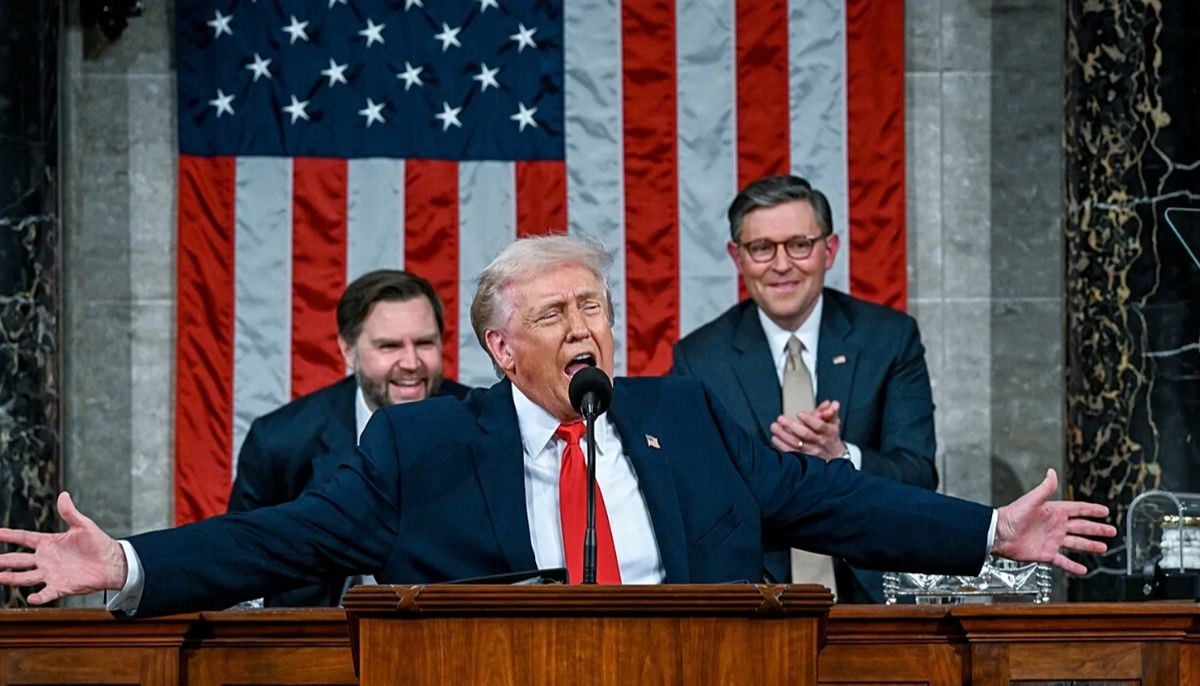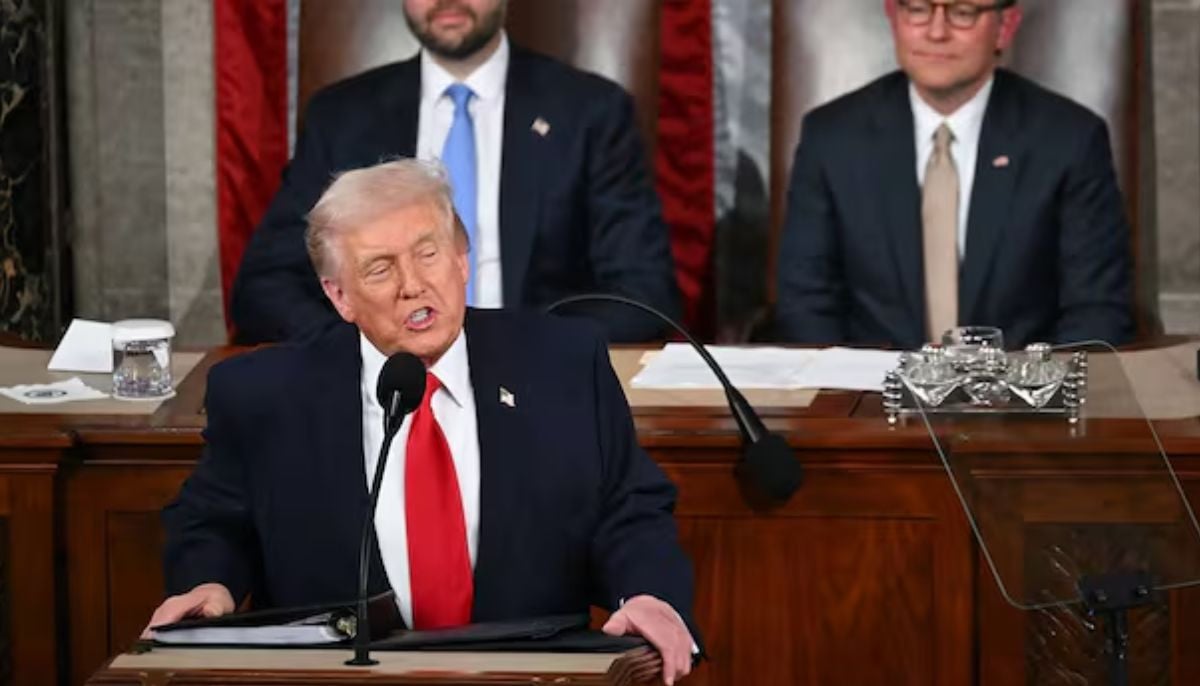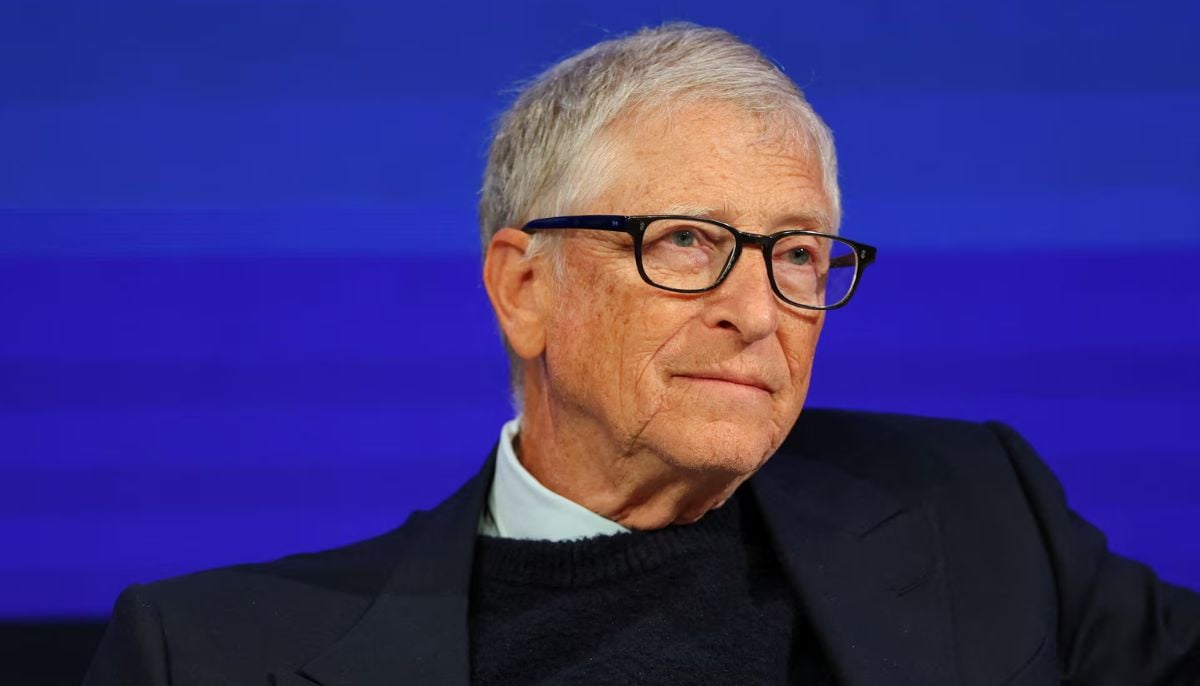By giving minds to machines, a Pakistani-American whizkid is retooling the future
Amir Husain is among those few American technology entrepreneurs of Pakistani origin, who are highly-sought-after in the US defense industry, and SparkCognition works across the defense and national security space in the US government and the global industrial defense base.
Two roads diverged in a wood, and I—
I took the one less traveled by,
And that has made all the difference.
--Robert Frost
As a child on way to coming of age in Lahore, the largest city of Pakistan’s Punjab province, Amir Husain chanced on a preindication that was to set him on a path only few would dare to take as it was still in the proverbial paving by the trailblazing pioneers.
Just an introduction to an 8-bit home computer, launched in January 1982 by Commodore International, quite medieval compared to what we have now, was all that was needed to lock his curiosity on the machines that would one day mimic the human brain and go beyond.
Husain is among those few American technology entrepreneurs of Pakistani origin, who are highly-sought-after in the US defense industry, and SparkCognition works across the defense and national security space in the US government and the global industrial defense base.
“One of my most striking memories from when I was young will always be when at the age of four, visiting a friend’s house in Lahore, I saw the Commodore 64 running the game “Hangman.” I was enthralled,” Husain, who now heads SparkCognition, the award-winning artificial intelligence solutions firm, told The News.
In that wow-bit, he was only marveling at how a plastic box with keys on it could do those incredible things that he would have otherwise thought were impossible to work without a good deal of Gandalfish wizardry or science-fictional alien technology.
He could not wrap his mind around it then, because unbeknownst to him, he had been sucked into a sublimity of stellar proportions that was yet to dawn upon him in its gargantuan glory.
“I immediately went home and built myself a ‘computer’ out of broken toys and cardboard boxes, so entranced was I with the incredible creative possibilities this machine represented," he said.
Husain was so sold to this idea that he could not help giving himself up to it truly, madly, and deeply. His whole world was pulsating with a raw organic excitement as suddenly so much seemed so possible.
Sparks were flying everywhere in his head as the neurons in his brain had started firing up ideas that were fated to become the raging fires of innovation in a field of technology that was in the throes of its nascent evolution and far from being what it would become one day. Natural intelligence was simply looking to figure out an artificial assistant that could help it go beyond its utmost scope. Nerves are the parents of neural networks.
Husain did grow up to become an adult like anyone would, but somehow he managed to crack the code on how to help a curious kid survive inside him with all the wonder that his little heart could beat up.
"My drive to do meaningful work with technology was my fuel. The great passion of my life was, is, and has always been my desire to positively impact the world through computing, and I wouldn’t let anything stand in the way of that"
“Computer science and artificial intelligence (AI) have been my lifelong passion ever since," the bountiful inventor with 27 awarded and over 40 pending US patent applications to his credit reflected recalling the day everything changed.
Recalling another powerful memory from his boyhood, Husain said when he was about eleven his father happened to give him an issue of a general-interest magazine called Dialogue.
“One of the main features in that issue was about computer scientist and physicist Ed Fredkin, and the title was ‘Is the Universe a Computer?’ This profound notion, that the richest concepts in computer science come to us from nature, has stayed with me ever since,” the SparkCognition’s mastermind reflected.
His alma mater in Pakistan happens to be the legendary Aitchison College in Lahore, where several generations of his family had studied before him. That’s exactly where he fell in love with equestrian sports and ended up winning several awards at national events, riding stallion with galloping elegance.
In pursuit of getting the advanced hang of computer science that was then on a tear in terms of research, he touched down in the US at the tender age of eighteen with an aim to tough it out, come what may. For the new kid on the block, the welcome wasn’t very warm and nor was there any beginner’s luck or buck by his side.
His entire luggage went unaccounted for on his way to Texas, where he was to enroll in the University of Texas at Austin (UT). A holdup that left him somewhat stripped of his valuables at his apartment came next.
However, the suitcases, full of determination, perseverance, and fortitude, he has been carrying in his heart were not up for the grabs for the rogue agents of fate. Shaken but not shattered, he shrugged these misfortunes off to show the world that true success stands on upsets and not setups, so to speak.
“My drive to do meaningful work with technology was my fuel. The great passion of my life was, is, and has always been my desire to positively impact the world through computing, and I wouldn’t let anything stand in the way of that,” he said.
He went on to say he had always believed that perseverance commands success, and sticking it out in Austin, Texas in the face of the initial hardships turned out to be a very good choice in the long term.
“This is where I learned so much about computer science and many subjects beyond, where I met my wife, where I started numerous businesses, and where I made some of the best friends I have had in life,” Husain added.
He went ahead to become a member of the Board of Advisors for the University of Texas Department of Computer Science.
Later he joined the Council on Foreign Relations (CFR) and the Center for a New American Security (CNAS) AI Task Force.
Husain, who was a founding member of the Board of Advisors for IBM Watson, has been recognised as Austin’s Top Technology Entrepreneur of the Year and one of Onalytica’s Top 100 global artificial intelligence influencers.
The Austin Business Journal listed the prodigal Pakistani-American on their Best CEOs of 2016 list. He walked away with the Austin A-List award, in his capacity as CEO of the fastest-growing startup in central Texas, twice (2015 and 2018).
He believes AI has the capability to be a tremendous force for good, but obviously “good” or “evil” is not inherent to the technology itself -it will do what it is programmed to do.
“We have to put in the work to make sure AI fulfills its potential as a boon for humanity. If we do, though, the possibilities of AI are incredible. It can help revolutionise healthcare, power and utilities, government, business -just about every function of society, and all for the better.”
He said it was going to be wrong to claim that AI would not take any jobs.
“While studies have indicated AI will create many more jobs as well, the fact is that AI is going to massively shift our global economy, and it is up to us to be ready for this,” Husain said without mincing his words.
He says now is when we need to start preparing for a future in which the entire social contract may need to be redefined. “In that future, I believe what we will need to do is consider the worth of our own existences beyond what we do for a living,” he said.
Turning to another side of the AI, Husain said it was going to change the entire paradigm of war, speeding up the decision-making cycle far beyond what humans were capable of, while increasingly leaving humans out of that loop.
“This change is inevitable as the genie of technology cannot be put back in the bottle once it is out. Even if the US refuses to develop AI for military purposes, other nations will. Those who choose not to do so will not be able to compete,” he said.
Husain is among those few American technology entrepreneurs of Pakistani origin, who are highly-sought-after in the US defense industry, and SparkCognition works across the defense and national security space in the US government and the global industrial defense base.
Rather than relying on ineffectual bans and platitudes about the “human in the loop,” he added that there was a need to start on the difficult intellectual work of ensuring that AI placed on the battlefield is ethical and explainable.
Success starts at home and if it is followed by an incessant series of ‘Sputnik moments’ it endures like anything. That’s Husain’s take on his struggle thus far.
“I was very lucky to be born in the home that I was. My parents were very educated -but even more than educated, truly enlightened- and they left no stone unturned in encouraging our curiosity,” he said sentimentally.
Beyond this cosmic luck, he said his passion for computer science powered the engine of hard work, which then resulted in skill acquisition. “Hard work is a necessary, but not a sufficient condition,” he, however, said.
He says his overriding passion is to build a better future -not just for one company, or a country, but for all humanity. This is the underlying desire and goal that continues to give him the strength to overcome hardships in business and life, and to keep going. It’s something that never lets him run out of steam. While it is also true that fortune never bets on the wrong horse, the burden of proving themselves right, that too time and again, lies with the latter.
“Money is a byproduct of success; for any truly great person, it can’t be your focus. If you are in company and the conversation turns to money and lingers, you can be sure you need better company. Finally, you cannot be afraid to fail, or let your successes make you believe you are invincible to failure,” he summed up.
Gone are the days when Aesop’s quip, “You are known by the company you keep”, was in vogue as of now the adage has evolved to become: “You are grown by the group you gather”. So rubbing shoulders with the crème de la crème keeps the cognition machine working frictionlessly. When great minds meet, miracles come to pass.
“Another important force behind my success is the people around me. I actively seek out the best in the world and try to learn from them all I can. I’ve been lucky enough to find and work with the best team in the industry, and that is an invaluable advantage to have,” Husain said fondly.
Looking ahead, Husain said as a leading AI company, SparkCognition is advancing the most important interests of society with artificial intelligence. “We will continue this mission as well as further the study of artificial intelligence. A new AI age is coming, and we intend to be the vanguards,” he said with a moving conviction.
Since its inception in June 2013, SparkCognition has seen an explosive growth. Some of the largest companies in the world, including industry leaders such as Boeing, Mitsubishi Hitachi Power Systems America, Honeywell etc, are now among its embedded clients.
The up-and-coming 'technology phenomenon' landed on CNBC's “Disruptor 50” list in 2017, while the Wall Street Journal named Husain's brainchild ninth on the tech companies to watch in 2018.
Commenting on his groundbreaking book titled “The Sentient Machine: The Coming Age of Artificial Intelligence” Husain said his goal behind this insightful work was to help the reader grasp what AI was and how it was going to reshape society.
“This is a crucial conversation we need to be having, and I hope The Sentient Machine helps more people become aware of this new AI era among us,” he said.
In his book, according to its introduction, Husain argues that we are on the cusp of writing our next, and greatest, creation myth. It is the dawn of a new form of intellectual diversity, one that we need to embrace in order to advance the state of the art in many critical fields, including security, resource management, finance, and energy.
The wizard of AI also addresses broad existential questions surrounding the coming of AI: Why are we valuable? What can we create in this world? How are we intelligent? What constitutes progress for us? And how might we fail to progress?
"Husain boils down complex computer science and AI concepts into clear, plainspoken language and draws from a wide variety of cultural and historical references to illustrate his points. Ultimately, Husain challenges many of our societal norms and upends assumptions we hold about ‘the good life,’” the book's foreword reads.
His word to the wise is that in order to be relevant to the future of the world and contribute to a better human society, inquiring minds that embrace new ideas are crucial.
Stressing that also equally critical happens to be fostering science-based thinking, Husain said this is not the same as promoting literacy alone.
“In fact, literacy in and of itself is quite insufficient. Education is what makes the difference, and it is about far more than the mechanical competence of reading or writing,” says Husain.
He advises to be open to ideas from all over the world and says he can’t strongly enough emphasise the need of being prepared to expose yourself to unconventional and uncomfortable notions that challenge prevailing dogmas.
“Create space for those who are different from you to express themselves and focus first and foremost on science … the race for global AI dominance is just beginning,” Husain said topping off his epilogue.
-
Jack Hughes's proximity to Trump angers Tate McRae fans
-
Nobel-winning scientist resigns from Columbia university after Epstein links revealed
-
At least 30 dead after heavy rains hit southeastern Brazil, 39 missing
-
Japan plans missile deployment near Taiwan by 2031 amid growing regional tensions
-
Trump delivers longest State of Union address in history: Inside key details on economy, security and global strategy
-
Trump’s 2026 State of Union address: Inside key takeaways, major policy shifts & top announcements
-
Rep. Al Green removed from House chamber during Trump’s State of Union address: Here’s what happened
-
Bill Gates breaks silence on Epstein links, ‘took responsibility for his actions’ during town hall meeting
